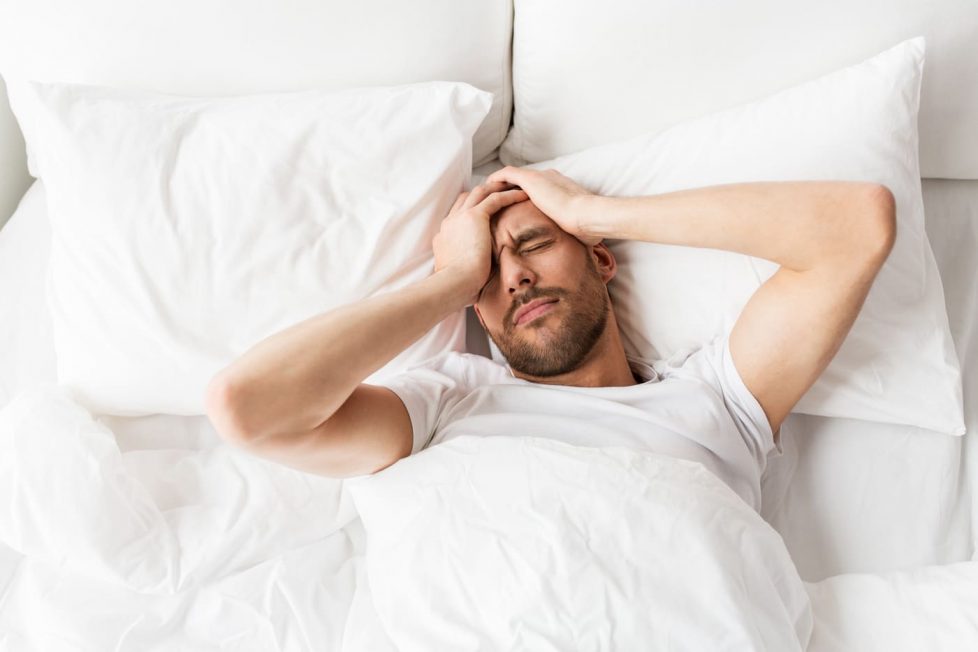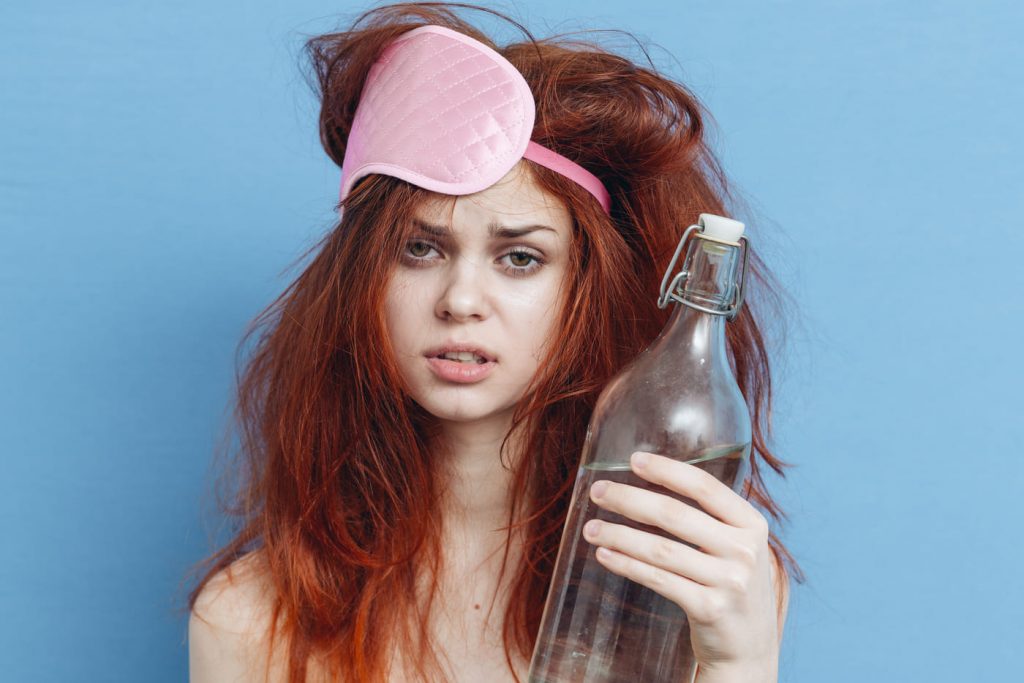How to avoid a hangover during the week?
If you want to enjoy a drink without unpleasant hangover symptoms, you can try some prevention steps

If you want to enjoy a drink without unpleasant hangover symptoms, you can try some prevention steps

If you want to enjoy a drink without unpleasant hangover symptoms, you can try some prevention steps
We understand. Having fun with friends sometimes means enjoying more than one glass of red wine. Hangovers usually begin several hours after you stop drinking. The symptoms can vary in intensity, depending on the person and the type and amount of alcohol consumed.
While people may claim that coffee or a shower helps you recover faster, there’s no way to truly speed recovery. The brain and body need time to recover and heal, and there’s no way to fast-track that, other than abstaining, moreover there are things you can do to make the morning after a little less miserable.

One of the easiest ways to avoid alcohol side effects is hydrating prior to drinking. In the 48 hours before you start drinking, carry a water bottle around with you and drink as much as possible. Remember, it’s recommended to have 8 glasses of water on a normal day, try to double that if you’re drinking!
We all know not to drink on an empty stomach, but if you eat a fatty meal prior to drinking, your alcohol absorption will be slower and you will be less likely to experience a hangover. We recommend healthy fats like avocados, almonds, and walnuts.
Take one capsule of vitamin before your first drink. This all-natural supplement aids your body in processing alcohol, removing acetaldehyde and replenishing crucial vitamins like zinc, magnesium and complex vitamin b. It also does all this before you start drinking, making it the perfect prevention strategy.
Alcohol that is light in color like vodka or white wine possesses fewer congeners. The darker the liquor, the worse the hangover. We also recommend you stick to one type of alcohol all night, switching between various kinds increases the likelihood of a hangover.
Drink water between each alcoholic beverage. This will keep you hydrated. You should also snack throughout the night. Avoid salty snacks that will further dehydrate you and reach for finger sandwiches or vegetables to munch on. Food will help slow the absorption of alcohol throughout your body.
No matter how late you get home, stick to your routine. Studies show that waking up at the same time each day is good for you, as is continuing to exercise even if you feel hungover. Whatever you do, get up and get going.
I know, getting out of bed can seem exhausting after a night of drinking, let alone getting to the gym. But sweating out toxins and kick-starting your day is an excellent way to strip your body of a nasty hangover.
Drinking caffeine will only dehydrate you more so skip the coffee. Instead, mix yourself a glass of water with lemon juice and a couple pinches each of sugar and Himalayan salt. This mix will help to replenish your electrolytes and rehydrate you.
Research has found that the presence of bubbles—either in a carbonated beverage like champagne or in a still liquor mixed with sparkling or tonic water—can speed up the rate of alcohol absorption. The carbonation can cause the surface area of the stomach to expand, which leads to increased alcohol absorption (and higher likelihood of an unpleasant morning after).
Nutrient-rich eggs contain the chemical N-acetyl-cysteine, which can help clear the liver of harmful free radicals.
Non-steroidal anti-inflammatories provide headache relief without upsetting the stomach. Be careful not to make a habit of relying on pain-relievers containing ibuprofen, since some doctors warn they react with alcohol to damage the liver.
Avoid what? Congeners are the compounds that give liquor its flavor and color. Every type of alcohol contains congeners, but dark alcohols, including red wine and whiskey, generally have more of them than lighter ones. These toxic chemicals may set off an inflammatory response that helps bring on hangover symptoms, and many turn into poisonous aldehydes as they’re digested the next day.
Cigarettes, and other drugs also produce intoxicating effects. Using them while consuming alcohol can affect hangover severity.
Symptoms are less likely if you drink small amounts of alcohol. Drink less than the amount it takes to make you feel intoxicated. Even if you do become intoxicated, drinking less can make hangover symptoms less severe.
Hangover symptoms tend to ease up over eight to 24 hours. Your body has to clear the toxic byproducts of alcohol, rehydrate, heal tissue and restore functions and activity to normal.
